“I’ve come to talk about crisis and opportunity.”
Thus began President Joe Biden’s first address to Congress given at the 100-day mark of his presidency. The hallmark of the Biden presidency so far is clear: under-promise and over-deliver. In December President-elect Biden announced that in his first 100 days in office 100 million shots would be administered to Americans. At the time it seemed like a dangerous, perhaps downright foolish, announcement. By March, America had met that goal and by the time Biden made his first address to Congress at the end of his first 100 days he could announce that over 220,000,000 shots had been administered. “Tonight I can say because of you, the American people, this vaccine has been one of the best logistical achievements this country has ever seen.”
Biden’s accomplishment stands in stark contrast to his predecessor who often did exactly the opposite: over-promising and under-delivering. By October 2020, as the coronavirus raged, Trump had declared that it would be gone no less than 38 times!
As vaccines increase, COVID deaths decrease, and Americans return to some semblance of normalcy, two questions loom: What’s the secret sauce so far? Can Biden keep this up?
The strategy so far is to speak softly and rarely and spend the time solving problems. This is not typical of the modern presidency. As political scientist Sam Kernell showed, in recent decades American presidents have spent a great deal of time talking and travelling, often at the expense of governing.[1] In its first 100 days, the Biden White House seems to have broken that habit. By concentrating on governing, Biden is taking the presidential model back to an earlier time where problem-solving mattered. Perhaps this change is driven in part by preference and in part because the traveling presidency is hindered by COVID restrictions. Regardless, the contrast with Trump could not be more stark. As Andrea Risotto discussed in a recent piece, Biden is content to let surrogates carry the messaging load. He doesn’t feel that he has to dominate the news every day, and when he does speak it is to announce something he has done.
The secret sauce then is that Biden actually knows how to govern. His experience stands in stark contrast to his predecessor who had no governing experience, but it also stands in stark contrast to the two other 21st century presidents whose federal governmental experience was thin compared to Biden’s. Behind Biden’s victory lap is governing competence.
For example, confronted with a huge demand for COVID vaccines, Biden signed two executive orders early on invoking the Defense Production Act. These orders were critical to the ability of the vaccine manufacturers to get the raw materials and machinery necessary to expand production of the vaccine.
Confronted with yet another, different crisis of asylum seekers at the southern border (many of them children), Biden assigned his vice president the job of dealing with the root causes of migration: the chaos, poverty and dysfunction in the Northern Triangle countries. He asked for federal employees to go down to the border and assist HHS in dealing with the children there. His budget request to Congress asks for money to hire additional personnel to deal with the huge backlog of immigration cases. This approach harnesses the government’s ability to expand its capacity to solve a problem.
Confronted with the nonstop crisis of police violence against people of color, Biden’s attorney general has opened what’s known as “pattern or practice” investigations into two police departments around the country—with the promise of more to come.
Confronted with a climate crisis that requires action beyond America’s borders, Biden enlisted former senator and Secretary of State John Kerry to persuade the world that the U.S. is recommitted to reducing greenhouse gases and convened leaders of the world to discuss what more could be done.
But as successful as the first 100 days has been, Biden has his work cut out for him. The pandemic and the desire to be done with it gave him the opportunity to pass a massive rescue bill. In its wake, he has outlined two more enormous bills: The American Jobs Plan and the American Families Plan. They are expensive, totaling a combined $3.8 trillion. Already, powerful senators such as Joe Manchin (D-WV) are balking at the price tag. And Republican senators have returned to worrying about deficits, after a four-year vacation from such critiques.
To pass these proposals, Biden has at least two strategies. First, he wants the rich and powerful to pay more. “Wall Street didn’t build this country,” he said tonight, “the middle class and unions did.” As part of his plan to pay for much of his new spending, Biden announced that he will ask for $80 billion in extra funding for the IRS so that they can audit more tax returns for people making more than $400,000 a year. In the past decade, the audit staff of the IRS has decreased, as have the total of audits of taxpayers. And audits of high-income earners have decreased much more than audits of lower-income workers. As my colleague Bill Galston points out in a WSJ op-ed, it sounds almost too good to be true but if more wealthy individuals faced audits, the government could recover a big chunk of change—enough to help fund Biden’s next set of proposals.
And second, his plan emphasizes American jobs—jobs that will go to exactly the people displaced by globalization. In perhaps the most powerful statement of the evening, Biden said, “All the investments in the American jobs plan will be guided by one principle: buy American… American tax dollars will be used to buy American products and create American jobs.” And he announced that even before passage of legislation he has limited the ability of his Cabinet to offer exemptions from the mandate to buy American.
We are seeing a very different presidency than we have seen in recent years. Like others before him Biden has big plans. But he has the depth and breadth of experience to make them reality. Or at least that’s what we’ve seen in this first 100 days.
[1] See the excellent analysis in Going Public: New Strategies of Presidential Leadership.
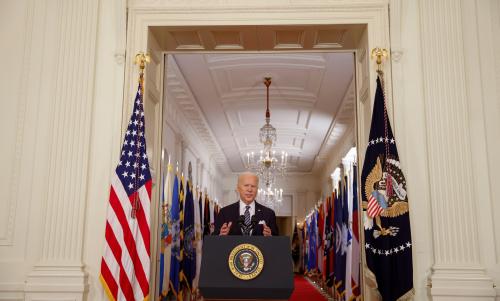
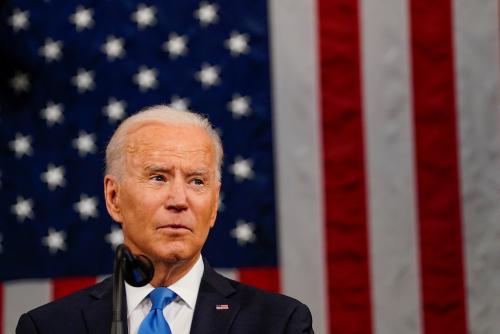
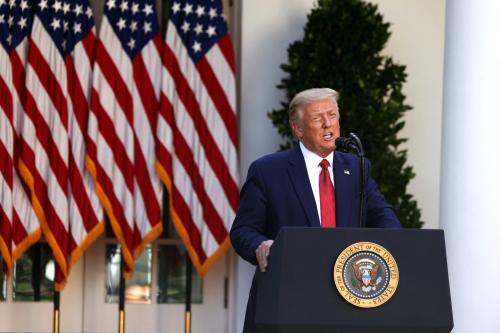

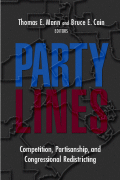
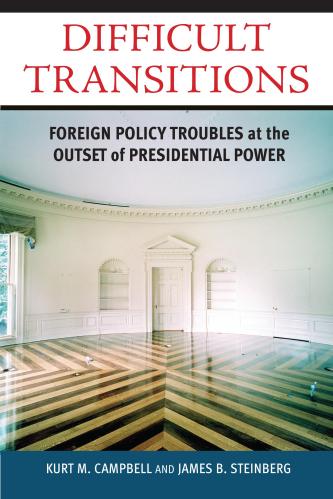

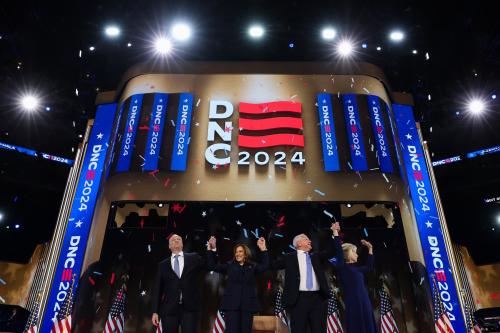
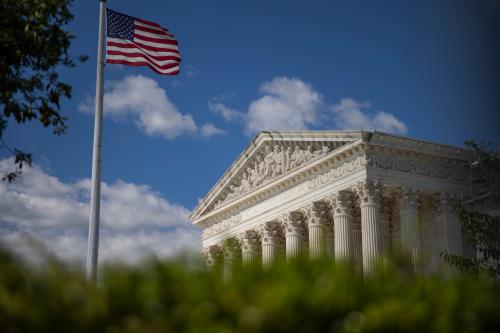
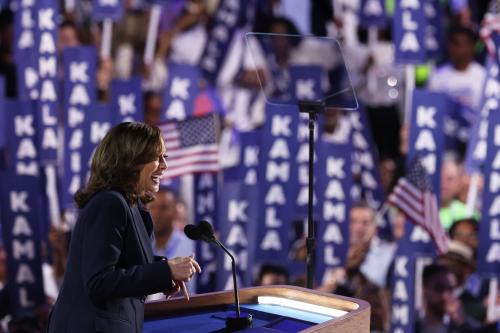
Commentary
Biden’s 100-day strategy: Under-promise and over-deliver
April 28, 2021